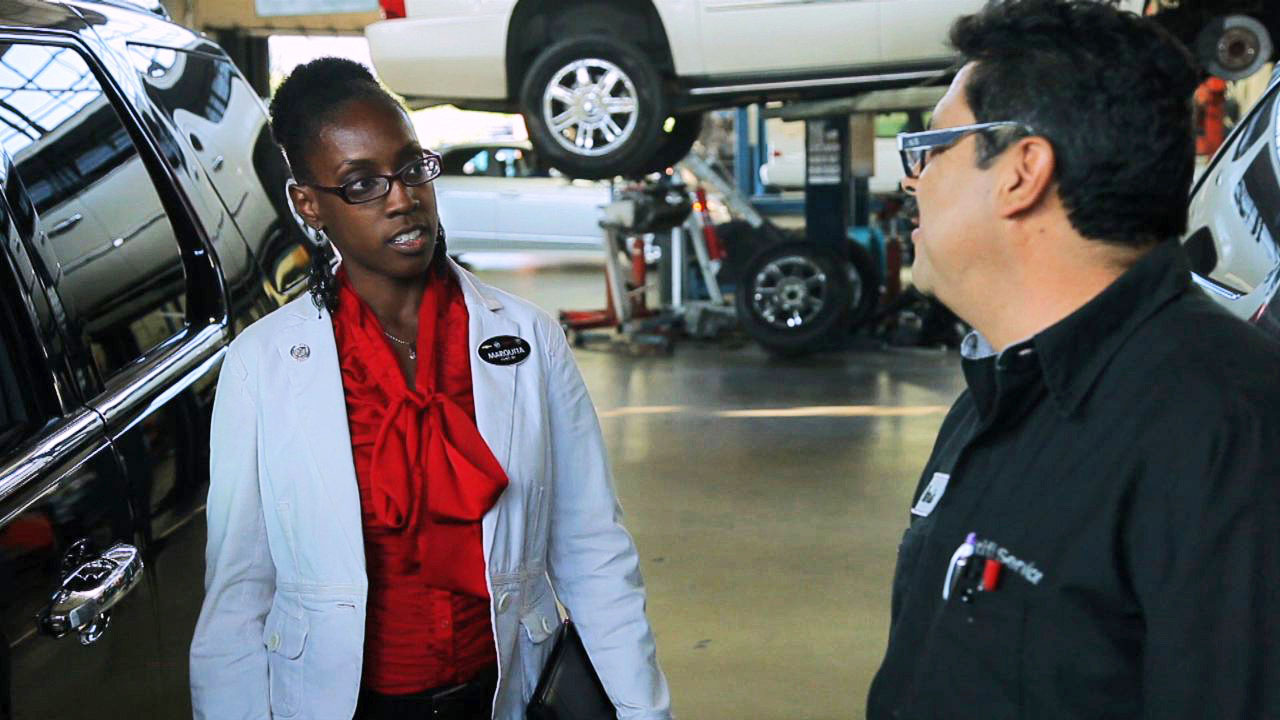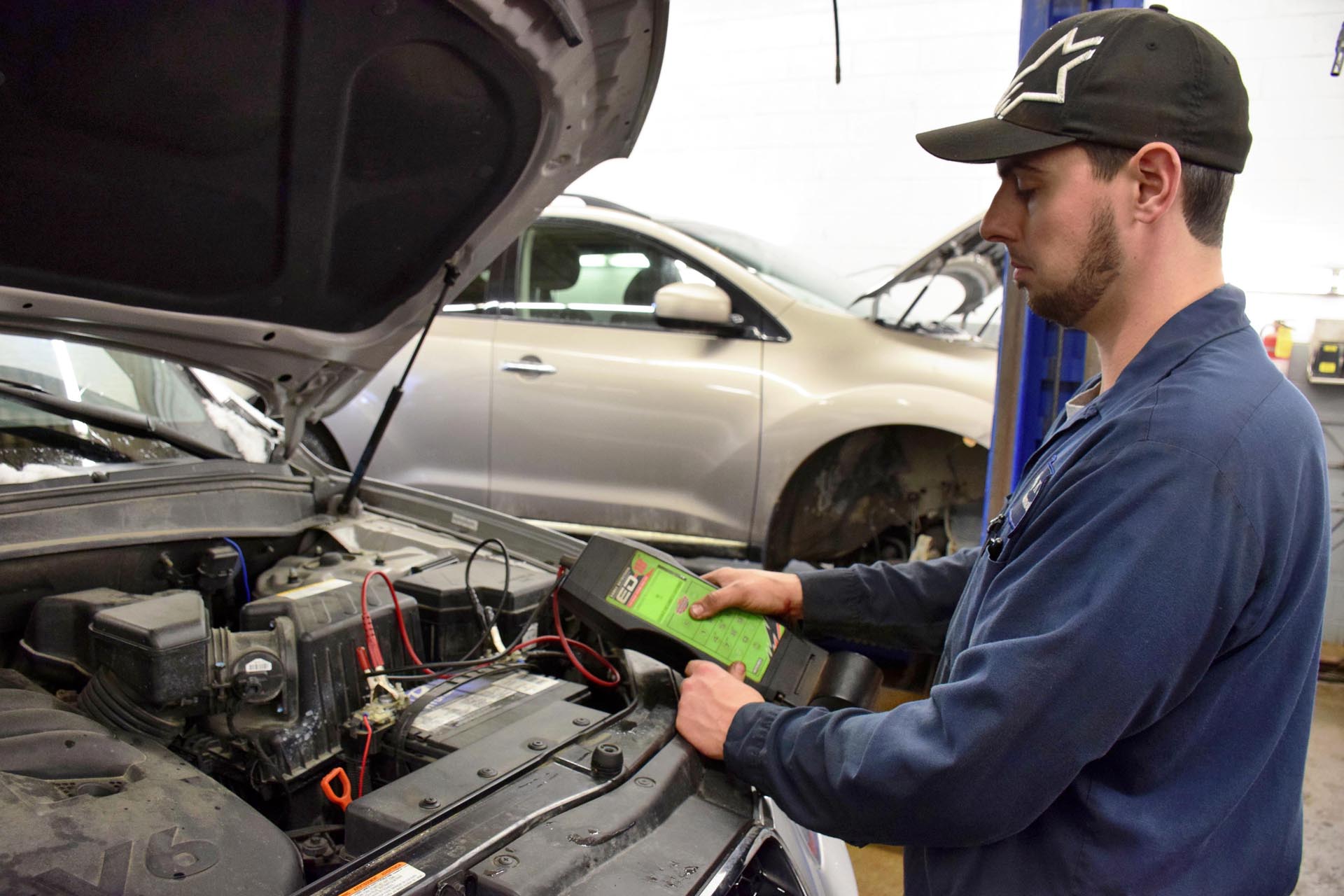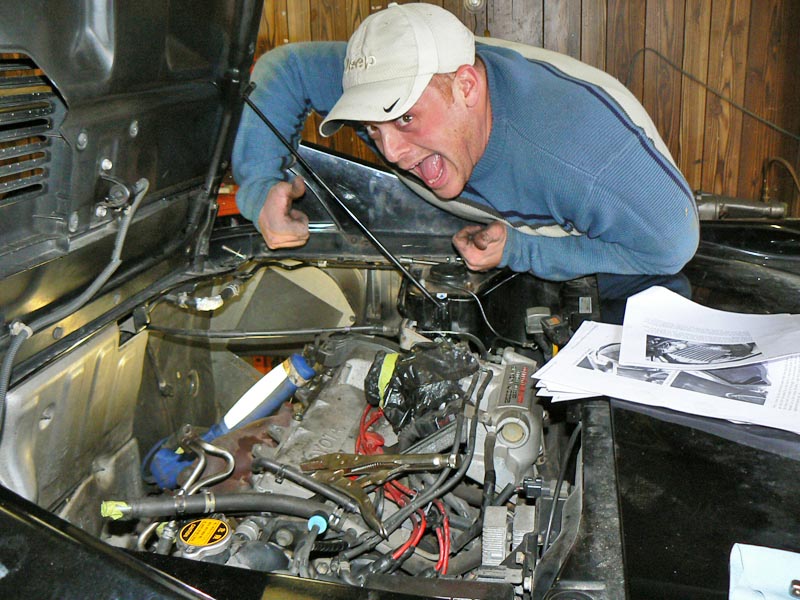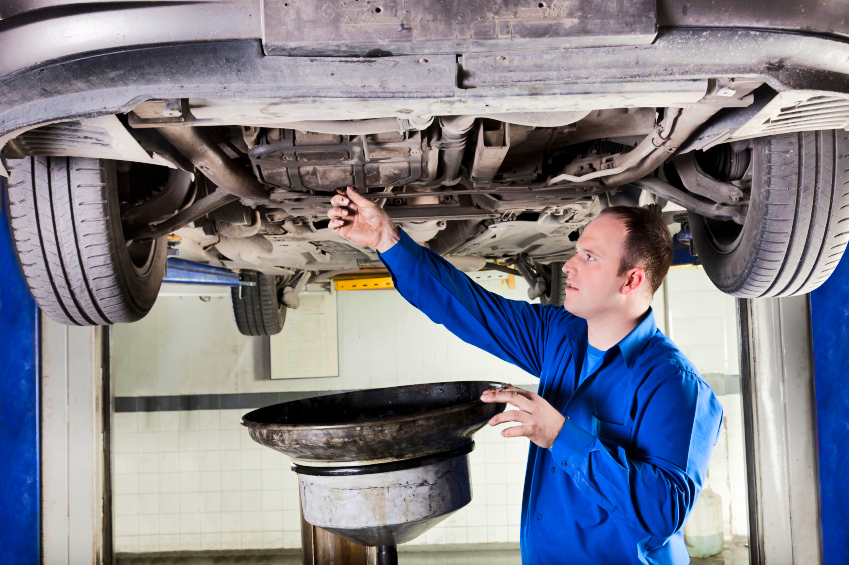Options are numerous and compelling when it comes to fixing and maintaining your ride. Will your ride visit its dealer service facility for repair and maintenance? A local garage or franchise repair shop? A side mechanic who does work in his back yard for cash?
Which option is best? If a non-dealership wrench touches your new vehicle’s underbelly, will your new ride decompose into a heap of scrap metal?
Just where is the best place to take your ride, anyways? There’s no definite answer to that question. It depends on numerous factors, including your budget, the age of your ride, and the work your ride needs.
Here’s a look at some of the pros, cons, considerations, and characteristics of each option for car repair.
Place: The Dealership

Typical Price: Higher
Pros: Dealer technicians have the latest software updates that make your ride run and function at its best, the latest Technical Service Bulletins to help them quickly and easily address common complaints, and factory-trained mechanics who are intimately familiar with, and experienced, in working on your machine. Likely, they’ve also got access to your ride’s full history: service records, recall and warranty-related repairs are all tied to your ride’s VIN number, and examined before it goes in for service. Go in for an oil change on your new ride, and you might get a recall carried out, and a software update, in the process: saving you time and making your ride better. There’s likely free coffee and Wi-Fi, too.
Cons: Dealerships tend to be pricier than your corner car repair shop, with higher hourly labor rates and pricier factory parts on offer as the sole option for replacement, in many cases.
Ask the Mechanic: “Customers are encouraged to service and repair their Ford and Lincoln vehicles at their dealerships for many reasons” explains Brad White, the National Service Operation Manager at Ford Canada.
“First, service technicians participate in extensive factory-sponsored certification training to help them become experts on the operation of Ford/Lincoln vehicles. Second, dealerships stock Ford, Motorcraft, and Ford-authorized branded re-manufactured replacement parts. These parts meet or exceed our specifications. Parts installed at the dealership carry a nationwide 24-month or unlimited kilometre parts and labor limited warranty. And third, for convenience, many dealerships have extended evening and Saturday hours to make servicing easy for the customer.
“Vehicles are becoming very sophisticated and are built with multiple, complex performance systems. Every manufacturer develops these systems using different specifications and features. That is why it is important to rely upon your dealer to properly diagnose and repair vehicles”.
Other Considerations: Dealerships have access to a database of information on your car, and can record the completion of any service work to make future warranty claims easier, if needed.
For many drivers, servicing a new ride at a dealer is a good idea, as a bare minimum, until the warranty is up. Also, forming a relationship with your dealership is never a bad thing, in case you need warranty work or for when it’s time for a new ride.
Many new vehicles, including premium brands, include some sort of free maintenance through the dealer anyways, partially in hopes of kicking off a long-term relationship.
Finally, though there’s a tendency to assume dealership service centers are always pricier, this isn’t always true. In hopes of maintaining a highly-profitable relationship with customers over the long term, you’ll often find dealer shops offering incentive pricing on tune-ups, maintenance packages, oil changes, tires, and the like.
Just look for an item called Shop Supplies on your bill, as this is largely considered to be a rip-off charge where you get dinged another 20 bucks for shop towels and floor-dry.
Place: The Local Garage or Franchise Shop

Typical Price: Medium to high
Pros: In many cases, the local garage or franchise store can get the repair work your ride needs done with less money vacating your wallet. Lower overhead and lower shop rates help, as does the local shop’s ability to source parts from aftermarket manufacturers, which can save money. If your ride needs new ball-joints and an air filter, dealer-only parts can cost twice as much and the labor can cost 10 or 20 percent more. On bigger repair jobs, the difference could be even more.
And sure: factory parts are pitched as the highest-quality option for your ride by dealers, though millions of Canadians drive vehicles with third-party or aftermarket parts installed, daily, without issue. The shop owner may even be willing to negotiate a better cash-price for a big job, too.
Cons: Depending on the age and type of ride you’re running, and the work it needs, the local repair shop may not have access to all software, scanners and equipment required for the job. Though local garages have access to many of the specialty tools and electronics used by dealers, some may not be able to handle certain jobs efficiently, especially if they’re computer-related in nature. Same thing goes for specialty vehicles like hybrids, diesels and certain performance cars. Plus, the mechanic at your local garage might not be a specialist in working on your brand of vehicle, the way your dealership mechanic probably is.
Ask the Mechanic: “Price is the obvious factor” says Paul Kennaley, a mechanic in Sudbury and frequent contributor to our Mechanically Declined column. “Plus, all of the services outlined in the owner’s manual, like brake service, transmission service, filters, and the like, are warranty approved if carried out by a recognized independent shop. The savings can be major”.
Other Considerations: The nature of the work required is part of the consideration, here. If your few-year-old Camry Hybrid has an issue with its hybrid drive system, the Toyota dealer is likely the best place to have a look. If it needs an oil change and a cabin air filter, your local garage will likely get the job done just as well. Fun fact: a recent survey by J.D. Power and Associates found higher overall customer satisfaction rates at private shops than dealer shops.
Place: The Backyard Guy

Typical Price: low
Pros: Like many vehicle owners, I’m a fan of this option, because I never drive a brand new car, I know cars are all made of nuts and bolts that come apart and go back together, I know how to self-diagnose my ride and find parts for it, and I’m a cheap-ass. For years, if I didn’t have the time or skill to change my own struts or brake pads, I’d take my ride to a family friend, who worked part-time as a semi-retired dealership mechanic, and did repairs on the side, at home, for cash.
The right ‘Backyard Mechanic’ can save you a bundle, especially if you’re able to procure the parts he needs, and deliver them with your vehicle. In many cases, the backyard mechanic has a positive reputation, repeat customers, and has, in any likelihood, spent years working as a professional mechanic elsewhere.
Cons: Working outside of the boundaries of a licensed shop or dealership means you’ll want to do your homework on the mechanic in question: ensuring they’re skilled, licensed and qualified to perform the work. Word of mouth is how these guys typically get business. You likely won’t be protected by a warranty policy on the work performed, and since you’ll likely pay cash, there may not be a paper trail or documentation to prove the work was carried out down the line. Also, as the typical backyard side-guy mechanic doesn’t have full-service shop at home, they’ll be somewhat limited in the jobs they can tackle.
Ask the Mechanic: John Doe, a backyard mechanic in my hometown who prefers that I don’t use his real name because he works at a dealership by day, tells me “I work at my own pace when I’m not busy with other things – so I can’t usually do a repair as quickly as you might see at a shop, but if you can leave your car with me a few days, I’ll probably save you a few hundred bucks. Working for cash on the side helps me earn a few bucks, and helps save customers a few bucks, too”.
Other Considerations: Some backyard mechanic types don’t keep regular hours, and doing vehicle repairs in their spare time may make it difficult to secure a timely appointment, or guarantee a completion date for bigger jobs. Still, where budget is the priority, the backyard mechanic may be the perfect solution to keep your older ride ticking on the cheap.

